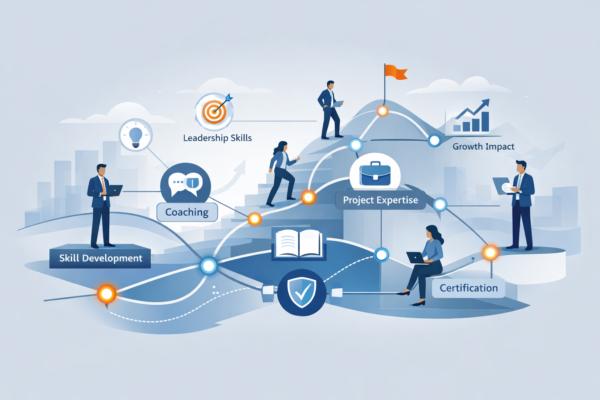The Hidden Power of Knowledge Transfer in Consulting.
2 min read
Is Consulting Just About Solutions, or a Catalyst for Change?
The traditional role of consultants has primarily been seen as providing expert advice and solutions to specific business challenges. However, the true value of consulting lies in the immediate outcomes, and the firms’ ability to leave a lasting impact on the client organisation. One often overlooked aspect of this impact is knowledge transfer.
While many consultants prioritise delivering tangible results, other factors including transferring skills, methodologies, and best practices can be even more valuable. By empowering client teams with the tools and knowledge to solve problems independently, consultants can create a ripple effect of positive change that extends far beyond the initial engagement.
Beyond the Delivery: Nurturing a Learning Culture
The most effective knowledge transfer programs go beyond simple training sessions. They involve a deep-rooted commitment to fostering a learning culture within the client organisation. This can involve adopting a “shadow” or “buddy” system, where client team members are paired with consultants to work closely on specific tasks. Through this approach, clients gain hands-on experience and insight into the consultant’s problem-solving methods and analytical techniques, improving communication as teams work with a shared language and approach. By embedding learning opportunities into project delivery, consultants can ensure that clients are actively engaged in the process and can apply their new knowledge in real-world scenarios.
Technology as a Catalyst for Continuous Learning
In today’s digital age, technology offers a powerful tool for facilitating knowledge transfer. From online learning platforms to collaborative project management tools, there are countless ways to create a sustainable and accessible learning environment. Furthermore, consultants can set up digital communities of practice or forums where client team members can continue to engage with consultants, and peers, to ask questions and share experiences even after the formal engagement has ended. By leveraging these technologies, consultants can provide clients with resources for continuous development, ensuring that the benefits of their expertise endure long after the project is complete.
The Hidden Value of Knowledge Transfer
In conclusion, knowledge transfer is not merely a nice-to-have; it should be a critical component of effective consulting. Client teams should be seen as allies, not competitors. Collaborating with them offers many benefits, including knowledge transfer but also enables a focus on higher-value client work and an environment to identify additional opportunities. Offering higher value to the client at a low cost to the consulting firm, provides a key differentiator rarely included in proposals. By investing in programmes that empower clients to learn and grow, consultants can create a legacy of value and position themselves as true partners in their client’s success. It’s time to recognise the value of knowledge transfer to unlock its full potential.
Author Openside



